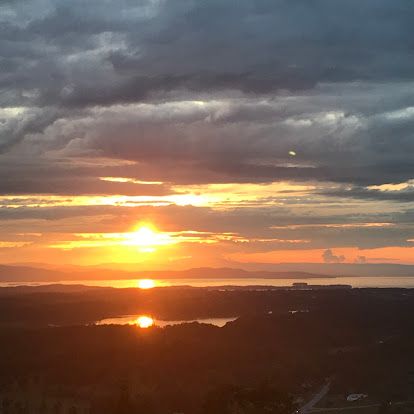The year is but a succession of days,
and I see that I could assign some office to each day
which, summed up, would be the history of the year.
Henry Thoreau, August 24, 1852
One who walks the woods and hills daily, expecting to see the first berry that turns, will be surprised at last to find them ripe and thick before he is aware of it.
Hayers rest at noon
and resume after sunset.
The Haymaker’s moon.
A journal -- a book
that shall contain a record
of your ecstasy.
Awake in the night
thinking of friendship and its
possibilities.
July 13, 1857
July 13, 2020
Ninety-five degrees, more or less; and we have had no rain. July 13, 1852
In the midst of July heat and drought. The season is trivial as noon. July 13, 1854
The vernal freshness of June is passed. July 13, 1860
First we had the June grass reddish-brown, and the sorrel red, of June; now the red-top red of July. July 13, 1860.
For a week past - and looking very closely, for a fortnight or more - the season has had a more advanced look, from the reddening, imbrowning, or yellowing, and ripening of many grasses, so the fields and hillsides present a less liquid green than they did. July 13, 1860.
Very hot weather. . . . I make haste home, expecting a thunder-shower, which we need, but it goes by. July 13, 1857
I hear the hot-weather and noonday birds, -- red eye, tanager, wood pewee, etc. Plants are curled and withered. July 13, 1854.
I hear, 4 P.M., a pigeon woodpecker on a dead pine near by, uttering a harsh and scolding scream, spying me. July 13, 1851.
The chewink jingles on the tops of the bushes, and the [field] sparrow, the vireo, and oven-bird at a distance. July 13, 1851.
And now the wood thrush surpasses them all. July 13, 1851.
Saw and heard two or three redstarts at Redstart Woods, where they probably have nests. July 13, 1856
Each day now I scare up woodcocks by shady springs and swamps. July 13, 1852
See the indigo-bird still, chirping anxiously on the bushes in that sprout-land beyond the red huckleberry. July 13, 1857
Huckleberries, both blue and black . . . in the greater abundance, and must have been ripe several days. July 13, 1852
If there is an interregnum in the flowers, it is when berries begin. July 13, 1854
It is impossible to say what day — almost what week — the huckleberries begin to be ripe, unless you are acquainted with, and daily visit, every huckleberry bush in the town, at least every place where they grow. July 13, 1852
One who walks the woods and hills daily, expecting to see the first berry that turns, will be surprised at last to find them ripe and thick before he is aware of it. July 13, 1852
The dark-purple amelanchier are the sweetest berries I have tasted yet. July 13, 1852 .
Vaccinium vacillans on Bare Hill ripe enough to pick, now considerably in advance of huckleberries; sweeter than last and grow in dense clusters. July 13, 1854
Thimble-berries are now fairly ripe and abundant. July 13, 1856
The northern wild red cherry of the woods is ripe, handsome, bright red, but scarcely edible. July 13, 1852
Vaccinium Pennsylvanicum berries pretty thick there, and one lass is picking them with a dipper tied to her girdle. July 13, 1857
The haymakers are busy raking their hay, to be ready for a shower. They would rather have their grass wet a little than not have the rain. July 13, 1857
This might be called the Haymaker's Moon, for I perceive that when the day has been oppressively warm the haymakers rest at noon and resume their mowing after sunset, sometimes quite into evening. July 13, 1851
It here cleared up at sunset, after two days’ rain, and we had a fine view of the mountains, repaying us for our journey and wetting, Mt. Washington being some thirteen miles distant southeasterly. July 13, 1858
*****
See A Book of the Seasons, by Henry Thoreau:
*****
A journal, a book that shall contain a record of all your joy, your ecstasy.See September 2, 1851 ("We cannot write well or truly but what we write with gusto. . . . Expression is the act of the whole man. . .. It is always essential that we love to do what we are doing, do it with a heart.”); May 6, 1854 ("Every important worker will report what life there is in him. All that a man has to say or do that can possibly concern mankind, is in some shape or other to tell the story of his love, — to sing; and, if he is fortunate and keeps alive, he will be forever in love.”).
I sometimes awake in the night and think of friendship and its possibilities. . . See June 11, 1855 ("What if we feel a yearning to which no breast answers? I walk alone. My heart is full. Feelings impede the current of my thoughts. I knock on the earth but no friend appears, and perhaps none is dreaming of me.")
The vernal freshness of June is passed. . . .If there is an interregnum in the flowers, it is when berries begin. See July 7, 1852 ("And now that there is an interregnum in the blossoming of flowers, so is there in the singing of the birds."); July 6, 1851 ("June, the month for grass and flowers, is now past. . . . Now grass is turning to hay, and flowers to fruits.")
A Book of the Seasons, by Henry Thoreau, July 13.
A Book of the Seasons, by Henry Thoreau
"A book, each page written in its own season,
out-of-doors, in its own locality.”
~edited, assembled and rewritten by zphx © 2009-2024
tinyurl.com/HDT13JULY








No comments:
Post a Comment